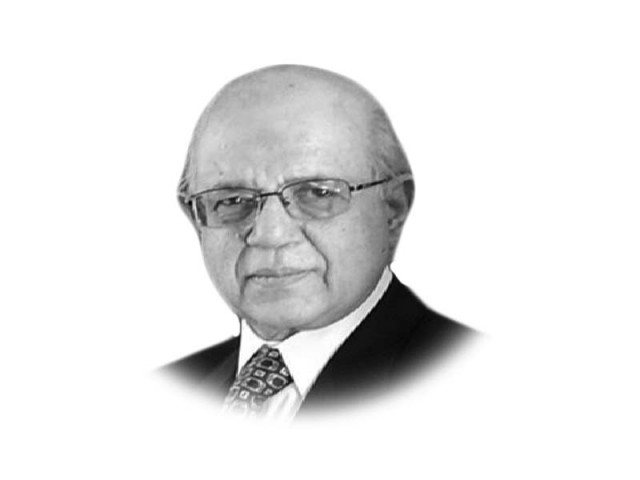A personal tribute to Sahibzada Yaqub Khan
Sahibzada Yaqub Khan once advised me "To draw from the heart of tragedy the vital impulses of life"

The writer is a graduate of Princeton University and the author of Economics of Development: Towards Inclusive Growth, (Sage India, 2015)
His many-sided genius has been extensively reported in national media. But my tribute to the great man is a personal one. As a modest person, he seldom talked about his exploits. He was still very much sought after and his loyal secretary Aly Nabi kept a careful record of his visitors. He wanted to remain up-to-date on Pakistan’s economy, on problems that affect the lives of the voiceless millions, and on my questioning him, would like to express his own views on the dynamics of Pakistani society, of the Muslim world and of the world at large.
Though by education and training he was a military man, he was more than capable of philosophical thought. In response to one of my observations about the irrelevance of Western economists to give the right advice on the problems of developing countries, he observed that it was an inevitable consequence of viewing reality as an “outsider” that “we become instantly vulnerable to distortions of perceptions”.
He possessed a natural modesty and was careful to pay a return visit to my house in response to my visits. It was on one of those return visits on April 21, 2010 that he asked me to take down the following sentence: “To draw from the heart of tragedy the vital impulses of life.” He then signed it saying that I must remember it because he may not live long. I tried to understand as to why he insisted that I remember these words. Aside from a general observation that one should try to make the best of bad times, it encapsulated his own response to the near-tragedies that he had to face during his lifetime. One was his imprisonment during the Second World War as a prisoner of war and second was his resignation from his top military position in East Pakistan. In the first case, he came out with linguistic abilities not easily found in any one person. He culled wisdom from his travels around the world. As Chaucer once said, “He knew the taverns wel in our toun.” Knowing people of different climes, he cultivated deep friendships wherever he went. These travels freed him from all prejudices. Holding a lantern across the divide between rights and wrongs, he illumined social consciousness about what ailed our societies — a creeping insensitivity to the widening gulf between the rich and the poor and to the frustrations caused by rosy promises turning to dust. In this context, he privately mourned the persistence of feudalism, which the founder of Pakistan had denounced openly as one of the causes of our moral and economic degradation.
The second tragedy was when he was stationed in East Pakistan. The authorities ordered him to crush the civil war conditions prevailing there. Faced with a dilemma such as the one a soldier finds himself in when he is required to fight for a cause in which he has lost faith, he acted decisively. Being a man of conviction, he refused to obey orders on the grounds that he could not be part of a colonial mindset in modern times. His deep understanding of modern history had convinced him that such a mindset was a dangerous anachronism. On this, he was dismissed and was faced with a court martial. As if God intervened to save him, the ground realities changed dramatically, and he was rehabilitated with all military honours. I think that this was the story of his eventful life that he summarised in the pithy phrase he related to me in April 2010.
He died peacefully, enjoying full health and surrounded by his caring and loving family — his faithful wife, two wonderful sons and a talented daughter-in-law who made a beautiful photo-portrait of him sitting imperiously, a day or so before his death. We all die but only a few die with so many honours that makes even the inevitability of death seem not that big a tragedy, but a mere passage from this world to the next.
Published in The Express Tribune, February 24th, 2016.
Like Opinion & Editorial on Facebook, follow @ETOpEd on Twitter to receive all updates on all our daily pieces.














COMMENTS
Comments are moderated and generally will be posted if they are on-topic and not abusive.
For more information, please see our Comments FAQ